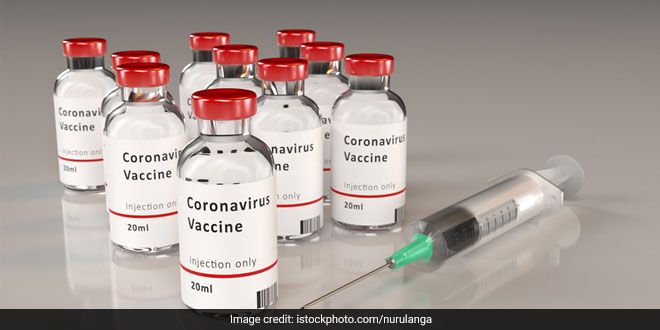Highlights
- A dry run of vaccine was conducted on January 2
- Covishield and Covaxin have got the regulatory approvals
- Positivity rate of COVID-19 has been less than 3% from December: Centre
New Delhi: The Health Ministry on Tuesday (January 5) said it is prepared to roll out COVID-19 vaccine within 10 days from date of emergency use authorisation, which was issued on January 3, but noted that the final decision lies with the government. Addressing a press briefing, Union Health Secretary Rajesh Bhushan said healthcare workers and frontline workers need not register themselves as their database has been populated on to the Co-WIN vaccine delivery management system in a bulk manner. “Based on the feedback of dry-run, the Health Ministry is ready to introduce COVID-19 vaccine within 10 days from date of emergency use authorisation,” he said.
However, while responding to a question on rollout, Mr. Bhushan said the final decision will be taken by the government. The country’s drugs regulator on Sunday granted restricted emergency use approval to Oxford-AstraZeneca’s Covishield and also to indigenously developed Covaxin of Bharat Biotech. Mr. Bhushan said Co-WIN system is made in India and for the world, and whichever country wants to use it, the Indian government will actively help. NITI Aayog member (Health) Dr V K Paul said an optimistic scenario is emerging with the pandemic situation in India consistently improving in terms of active cases and new deaths declining.
Let’s hope this trend will continue. In terms of the new UK mutant issue, this mutation has entered this country and 71 have been isolated which shows our capacity to mount that kind of a scientific investigation. But at the same time we have not seen the emergence of any untoward cluster in the country as of now which is reassuring so far, Mr. Paul said.
On the two vaccines that have been granted approval for restricted emergency use by the DCGI, Paul reiterated that in granting this permission and authorisation all scientific and statutory requirements have been met and regulatory norms followed. While healthcare and frontline workers will not be required to register themselves, Mr. Bhushan said when they would come to the population priority group, there the provision of registration and editing of data would come.
Then the system electronically allows session allocation…the beneficiary has been vaccinated this will also be digitally captured and he would be given this information digitally that when he has to come for the next dose. They will also get an acknowledgement, a unique health ID would also be generated, he said.
Mr. Bhushan said Co-WIN will have a provision that one can create a unique health ID and you can keep the acknowledgement in digi locker which is free or on your phone.
In case of an adverse event, to ensure its real time reporting there is a provision in Co-WIN vaccine delivery management system, he said.
Mr. Bhushan further said that Co-WIN has the facility of automated session allocation, Aadhaar authentication to prevent malpractice, creation of Unique Health ID for willing beneficiaries, reporting and tracking of adverse events following immunization, if any, SMSes in 12 languages to guide beneficiaries and vaccinators, QR code-based vaccination certificate issued after all doses, DigiLocker integrated for data retrieval and storing QR code-based certificate, 24×7 Helpline including IT professionals.
Giving COVID-19 figures, Mr. Bhushan said the average COVID-19 recovered cases exceeded average daily new cases for last five weeks.
Daily positivity rate of COVID-19 is continuously declining and has been less than 3 per cent from December 23, 2020 to January 5, 2021, he said.
Mr. Bhushan said of the total active COVID-19 cases presently, 43.96 per cent patients are in healthcare facilities, while 56.04 per cent are in home isolation.
India’s cumulative COVID-19 positivity rate has declined to 5.87 per cent; last week positivity rate was recorded at 1.97 per cent. Overall burden on healthcare infrastructure in country on account of COVID-19 has declined appreciably, he said.
Also Read: Coronavirus Outbreak Explained: Everything You Should Know About COVID-19 Vaccine Dry Runs
(Except for the headline, this story has not been edited by NDTV staff and is published from a syndicated feed.)
NDTV – Dettol Banega Swasth India campaign is an extension of the five-year-old Banega Swachh India initiative helmed by Campaign Ambassador Amitabh Bachchan. It aims to spread awareness about critical health issues facing the country. In wake of the current COVID-19 pandemic, the need for WASH (Water, Sanitation and Hygiene) is reaffirmed as handwashing is one of the ways to prevent Coronavirus infection and other diseases. The campaign highlights the importance of nutrition and healthcare for women and children to prevent maternal and child mortality, fight malnutrition, stunting, wasting, anaemia and disease prevention through vaccines. Importance of programmes like Public Distribution System (PDS), Mid-day Meal Scheme, POSHAN Abhiyan and the role of Aganwadis and ASHA workers are also covered. Only a Swachh or clean India where toilets are used and open defecation free (ODF) status achieved as part of the Swachh Bharat Abhiyan launched by Prime Minister Narendra Modi in 2014, can eradicate diseases like diahorrea and become a Swasth or healthy India. The campaign will continue to cover issues like air pollution, waste management, plastic ban, manual scavenging and sanitation workers and menstrual hygiene.
[corona_data_new]





























